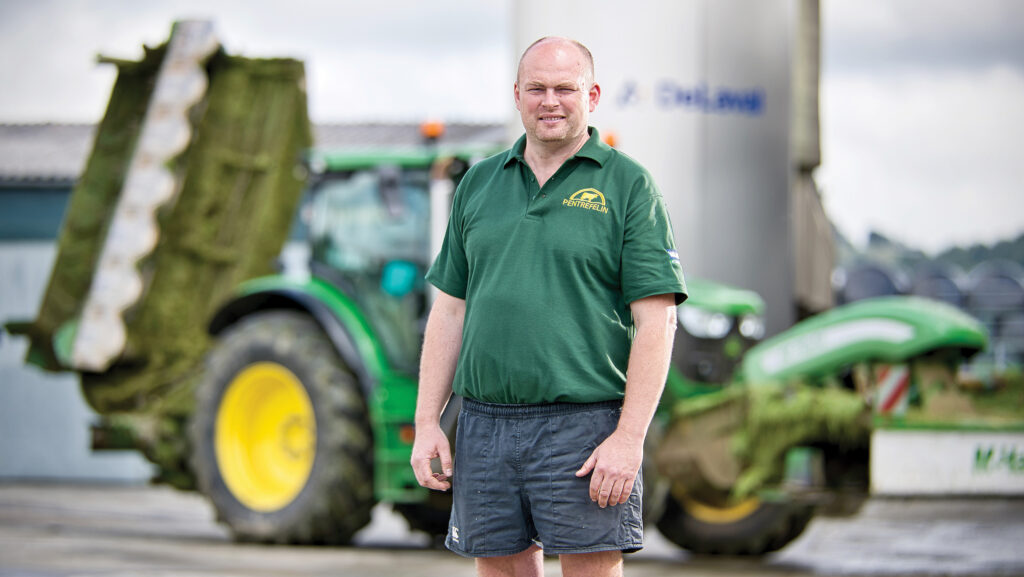Farmer Focus: Third cut in and grassland limed to maintain pH
 © Richard Stanton
© Richard Stanton As August came to an end, and with third cut done in four days, everyone was glad to see the last load of the season staked.
My two boys played a bigger part this year, as the youngest, Arawn, was logistics manager in charge of gathering 17 bales ready for immediate collection on arrival of the two trailers hauling. Meanwhile, my eldest, Hedd, with a licence, was allowed to haul on the road. With Dan’s help, they unloaded their own with the second JCB.
See also: 7 tips for liming grassland this autumn
The post knocker was still on hire, so we managed to get a few more lengths of new wire up and replace some old broken ones. The place has never looked so good. I would also like to thank neighbours for loans of equipment through the years.
As usual, this left me thinking I’d got not much on, so I did one phone call and ordered 400t of lime to spread on all fields at a rate of 1.2t/ha. We have our own machine, and it’s more of a maintenance dressing to keep things above pH 6.
Also, I had the job of covering everything with 150kg/ha (or, old-school, 40 units an acre) of Nitram 34.5. The reason we apply a heavy dose at this time of year, on the grazing ground especially, is to increase grass growth to build a wedge, maintain milk yields and grow grass for winter for the calves (R1s) so they can be outwintered all year.
Having previously received a load of own-label fertiliser, which would not come out of the bag or, if it did, in one big lump, I now refuse to buy anything except premium-branded stuff.
The nights are closing in fast and a torch is needed to fetch cows again. By 23 August, grass growth and cover had plummeted, so we have introduced six bales a day for the milking cows. We try to keep silage over from a previous year as it works better and is less risky than buying in during summer, so we don’t tend to be stung with expensive, poor-quality stuff.
I managed to have four hours of sea fishing, and the lack of fish did test my patience. It would have been easier to get one from the supermarket, but a family friend (aged eight) managed to feed the big barbecue we had that night.

